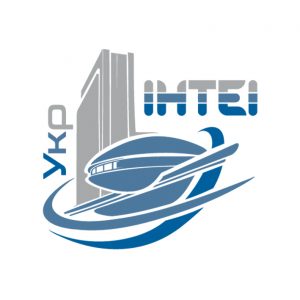Parkhomenko V. D. — Doctor of Science in Engineering, Professor, Adviser of Ukrainian Institute of Scientific and Technical Expertise and Information, 180, Antonovуchа Str., Kyiv, Ukraine, 03680; +38 (044)521-00-45; iiv1director@gmail.com
Seki S. — student of Kiev National University of Trade and Economics, 19, Kioto Str., Kyiv, Ukraine, 02156; +38 (044) 513-33-48.
INTELLECTUAL PRODUCT AS THE BASIS OF MATERIALIZATION AND DEVELOPMENT
Abstract. The purpose of the article is to refine the category of “intellectual product”, which materializes, and it is also important to determine the influence of the intellectual product on the structure of civilizational development, management and educational work. In analyzing the intellectual product as the basis of modern socio-economic development, we can conclude that its energy part is materialized, namely knowledge. Knowledge is formed by combining the three natural requirements of the law (the formation of a goal, the creation of knowledge and its implementation) and by using its own features, that is, a desire based on faith and freedom. In accordance with the provisions of the new economic theory of P. Romer, a person becomes a strategic resource and the goal of social and economic development. Therefore, there is a change in the model of human interaction with society by finding a compromise in the “human – society” system. There is a reorientation of consciousness towards the formation of the social economy.
Keywords: intellectual product, knowledge, skills, desires, man, social economy, model.
REFERENCES
1. Solow R.M. (1956) A contribution the theory of economical growth. Quartery Journal of Economics, pp. 3–4.
2. Romer P. (1986) Rastushchij oborot pribylej i dolgosrochnyj ehkonomicheskij rost [Rising turnover
profits and long-term economic growth]. Zhurnal politicheskoj ehkonomii [Journal of political economy], Vol. 94, pp. 1002–1011.
3. Parkhomenko O.V. Teoretychni osnovy systemy “informatsiia – znannia” [Theoretical foundations of the
“information-knowledge” system] a manual. Kyiv (in Ukr.): Derzh. in-t intel. vlasn. Publ., 2008, 172 p.
4. Bell D. The Social Framework of the International Society, in Derticizous, Michael L. and Moses, Joel (eds.), 1979, pp. 163-211.
5. Uebster F. (2004) Teoriya informatsionnogo obshchestva [Theory of Information Society]. Moscow (in Russ.): Aspekt Press Publ., 400 p.
6. Castells M. (1989) The Informational City: Information Technology, Economic Restructuring and the Urban-Regional Process. Oxford: Blackwell.
7. Hrishnova O.A. (2001) Liudskyi kapital: formuvannia v systemi osvity i profesiinoi pidhotovky [Human
Capital: Formation in the System of Education and Training]. Kyiv (in Ukr.): Tovarystvo “Znannia” Publ., 254 p.
8. Druker P. (1999) Ot kapitalizma k obshchestvu znaniya. Novaya postindustiralnaya volna na Zapade [From capitalism to the knowledge society. A new post-industrialist wave in the West] Ed. V. L. Inozemtseva. Moscow (in Russ.): Asadetsha Publ., 29 p.
9. Yevropeiska komisiia OON. Do ekonomiky znan. Rehionalnyi zvit [European Commission. To the knowledge economy. Regional report]. New York: Zheneva, 2002 Available at: http://www.unece/org/operact/enterp/documents/coverpagregion.pdt23.
10. Shkuruvii O.V. Intelektualnyi kapital u suspilnomu vidtvorenni [Intellectual capital in social reproduction] dis. … doc. Sc. in Econ. Kyiv (in Ukr.), 2009, 373 p.
11. Hava Yu.V. Intelektualnyi kapital: sutnist ta zrostannia roli v rozvytku ekonomiky [Intellectual capital: the essence and growth of the role in economic development] dis. … doc. Sc. in Econ. Kyiv (in Ukr.), 2009, 207 p.
12. Shevchuk O.B. (2005) Informatsiinyi kapital: yoho sutnist i vydy [Information capital: its essence and types]. Ekonomichna teoriia [Information capital: its essence and types]. Vol. 1, pp. 41–48.
13. Ekonomichna entsyklopediia (2000) [Economic Encyclopedia] Three volumes. Vol. 1. Redkol.: S. V. Mochernyi at al. Kyiv (in Ukr.): Vydavnychyi tsentr “Akademiia” Publ., 864 p.
14. Stiven R. Kovi (2001) Sem navykov vysokoeffektivnykh lyudey [Seven skills of highly effective people]. Lviv (in Ukr.): Svit, 452 p.
15. Nonaka Ikudzhiro, Tokeuchi Khirotaka (2002) Kompaniya — sozdatel znaniya. Zarozhdenie i razvitie innovatsiy v yaponskikh firmakh [The company is the creator of knowledge. Origin and development of innovation in Japanese firms]. Transl. from English. Moscow (in Russ.): Olimp-biznes Publ., 384 p.
16. Fedulova L.I. (2007) Ekonomika znan u konteksti pohliadiv Pitera Drukera [Economics of knowledge in
the context of Peter Drucker’s views]. Ekonomichna teoriia [Economic Theory]. Vol. 3, pp. 86–99.
17. Parkhomenko V.D., Parkhomenko A.V. (2007) Sistema “informatsiya – znanie” v innovatsionnoy deyatelnosti [Information-knowledge system in innovation activity]. Informatsionnoe obshchestvo: sostoyanie i perspektivy [Information society: state and prospects] Intern. scientific-practical. conf. Almaty, pp. 309–310.
18. Parkhomenko O.V., Parkhomenko A.O. (2012) Intelektualnyi kapital yak intehrovanyi chynnyk innovatsiinoho rozvytku [Intellectual capital as an integrated factor of innovation development] monograph. Kyiv (in Ukr.): Khmelnytskyi KhmTsNII Publ., 162 p.
19. Ivanova L. (2015) Chelovek v potoke peremen [Man in a stream of changes]. Kyiv (in Ukr.): Іnterservіs Publ.,198 p.
20. Kolot A., Kravchuk O. (2015) Liudyna i nova ekonomika: teoretyko-metodolohichnyi analiz vzaiemodii ta dominant rozvytku [Man and the New Economy: Theoretical and Methodological Analysis of Interaction and Developmental Trends]. Ekonomichna teoriia [Economic Theory]. Vol. 1, pp. 5–25.

